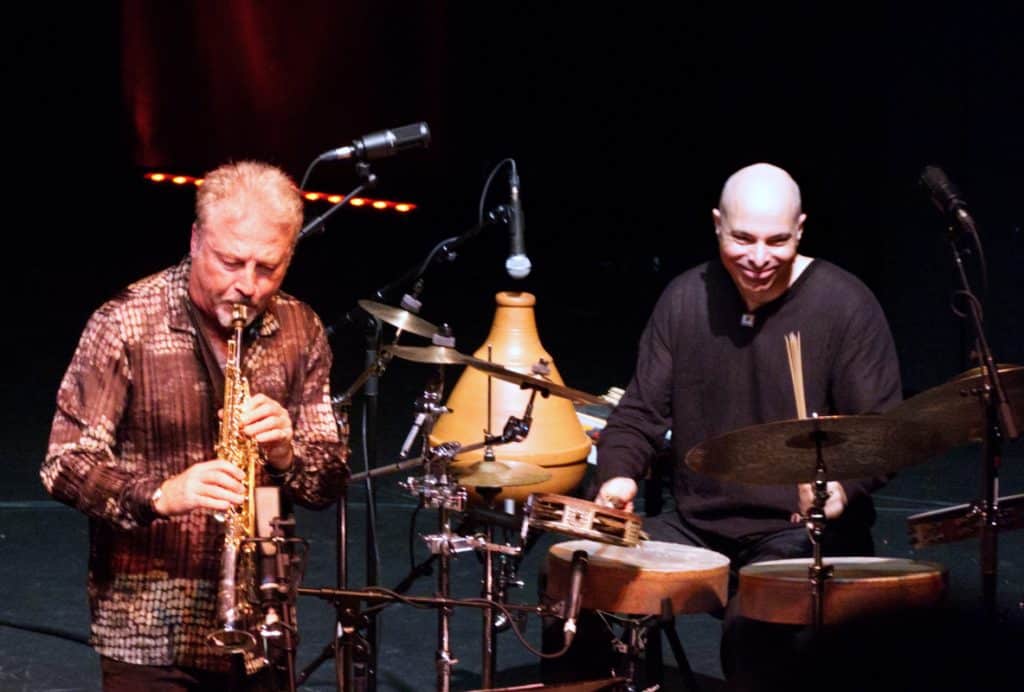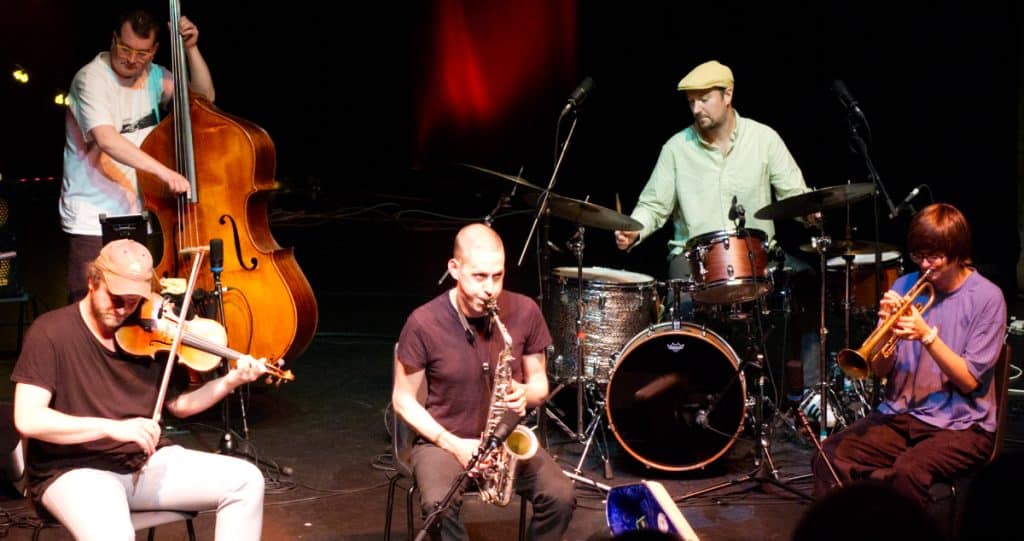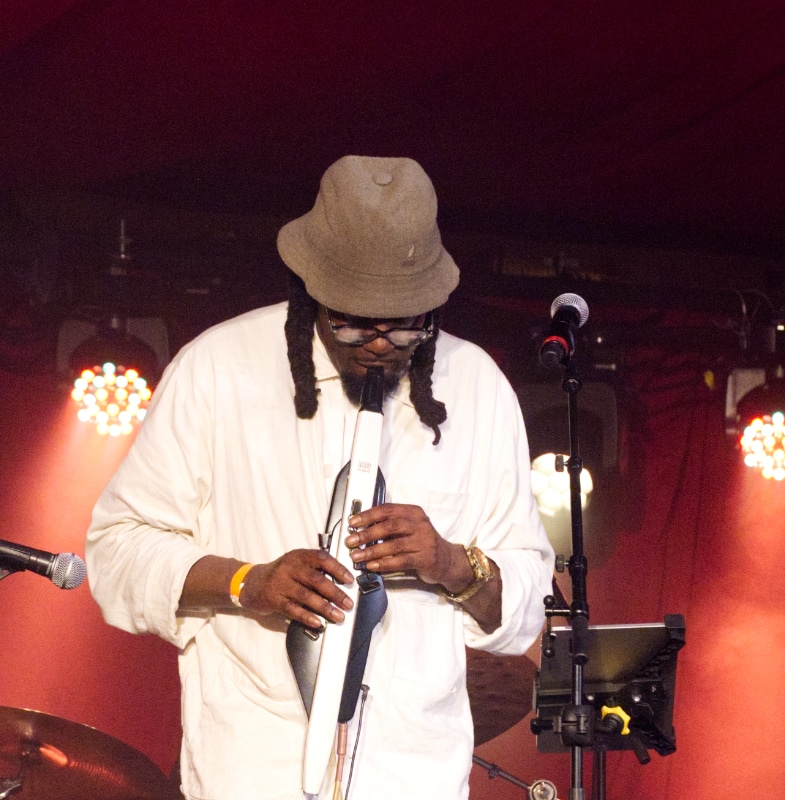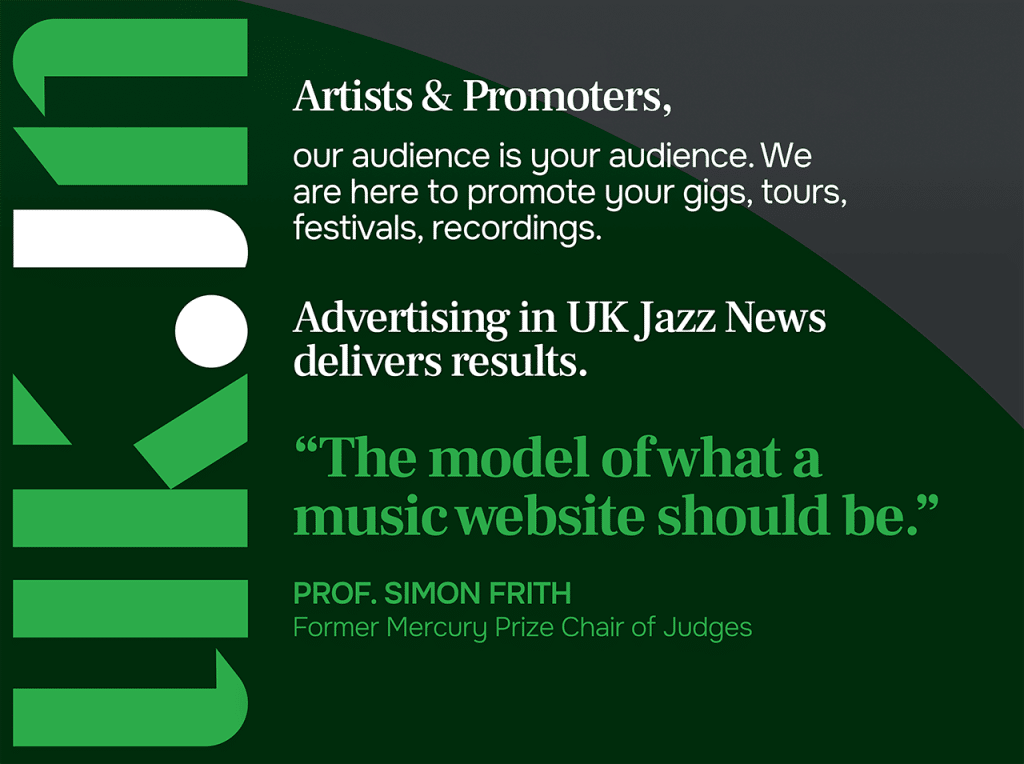Edinburgh Jazz and Blues Festival: Playtime with Byron Wallen, Soweto Kinch Trio, Matthew Kilner Quartet, Laura Jurd Quintet, Norman Willmore Sextet, Tim Garland’s Lighthouse Trio
It’s the middle of July, and the Edinburgh Jazz and Blues Festival comes around again: ten days crammed with interesting music – so much so that the inevitable clashes mean hard choices have to be made.
Usually this would preclude local musicians. But the Edinburgh institution that is Playtime, whose regular gig could hardly be more local for me, brings special guests to the festival. Celebrating their tenth anniversary with a new record, their guest this time was trumpeter Byron Wallen, one of several who feature on the record. They played three varied, written compositions, one each by Tom Bancroft, Martin Kershaw and Wallen himself, interspersed with two wholly improvised pieces. The latter were powerful and moving, as they were conjured art from nothing; one saw Wallen lay down his trumpet in favour of conch shells, producing eery calls over an evolving groove from the bass and guitar combination of Mario Caribe and Graeme Stephen respectively. The only thing wrong with the set is that I wanted it to go on and on.
But that would have meant missing sax star (and Radio 3 jazz host) Soweto Kinch. Backed by Nick Jurd on bass and Louis Hamilton-Foad on drums, and with samples, effects and the occasional backing track, Kinch played alto and tenor saxes, a wind synthesiser and rapped – all to the audience’s delight. His rapping is an integral part of his performance – a different kind of improvisation – his clever rhymes highlighting passionate political themes. His use of effects to loop his saxes as he goes along resulted in a rich sound – at times a choir of saxophones – but his unadorned tenor, accompanied just by the bass, was perfect in a beautiful rendition of Lush Life, too. The trio played a hugely entertaining set in front of a full house, showing why they’re festival favourites.

EJ&BF specialise in commissioning new projects and music. Matthew Kilner presented the premiere of his four-part Culkein Bay Suite and several other original tunes with his new quartet of Paul Harrison (piano), Ewan Hastie (bass) and Alyn Cosker (drums). Kilner was open about his influences – I picked up hints of Wayne Shorter, Coltrane and Ellington, whilst one piece was dedicated to Paul Motian and another to Peanuts Hucko. Most of the music was spritely post-bop, but there were some beautiful moments, too – the last segment of the suite featured an emotional duet between the tenor and piano, and later on there was some powerful, melancholy sax. Harrison, Hastie and Cosker played with the excellence one would expect from such musicians; the quartet are going into the studio soon to record this material, so there’ll be more chances to hear it.
Many of the gigs in the festival focused on the intersection between folk and jazz music, partly because much of the native Scottish scene exists in that liminal environment, but also because trumpeter Laura Jurd was the guest curator for a series of concerts themed “From Folk To Freedom”. Jurd herself premiered a new quintet featuring Martin Green, part of new-folk band Lau, on accordion and electronics, fiddler Ultan O’Brien, with Ruth Goller on bass and ever-rewarding Corrie Dick on drums. The relationship between Goller and Dick seemed to work superbly, keeping the music grounded but fluid. In keeping with Jurd’s theme, there were many free sections: spontaneity was to the fore; some passages brought to mind the Art Ensemble of Chicago, others the gentle folk-infused improvisations of Henri Texier.

Jurd and Dick were also part of the Norman Willmore Sextet, playing tunes from his 2023 album For All Your Needs. That has a distinct folk feel, but the addition of Jurd and Dick brought out the jazz inherent in the pieces too. Willmore’s alto playing was exciting and seemed to span the instrument’s capabilities, from melancholic, keening foghorn through to raucous euphoria. Shetlandic pianist Amy Laurenson played some beautiful, thoughtful passages. Fiddler Harry Gorski-Brown and bassist Brodie Laird-Jarvie, both of whom appear on the album, completed the sextet with some great playing.
Tim Garland’s Lighthouse Trio also had a folk element, albeit one rooted in the Middle East: percussionist Asaf Sirkis was playing an eclectic drum kit comprising a range of frame drums and cymbals, as well as a terracotta udu which was used to haunting effect. They mostly played pieces from their latest album, Moment of Departure, which cut back to the trio alone shone with new clarity. Sirkis’ playing was a revelation – it was the first time I had seen him live. He spent most of the show with a broad grin on his face – something infectiously joyous about the music. At times Garland and pianist Gwilym Simcock made it a percussion trio, Simcock beating the innards of his piano and Garland using his saxophone keys in sympathy with Sirkis’ rhythms. Garland also used the piano to great effect, blowing right into its body for the strings to resonate on Kenny Wheeler’s Sly Eyes. As well as Sirkis, Simcock and Garland seemed on their top form, producing some remarkable music. The empathy between the musicians was exceptional. In a festival packed with superb music, the Lighthouse Trio was an absolute treat.


